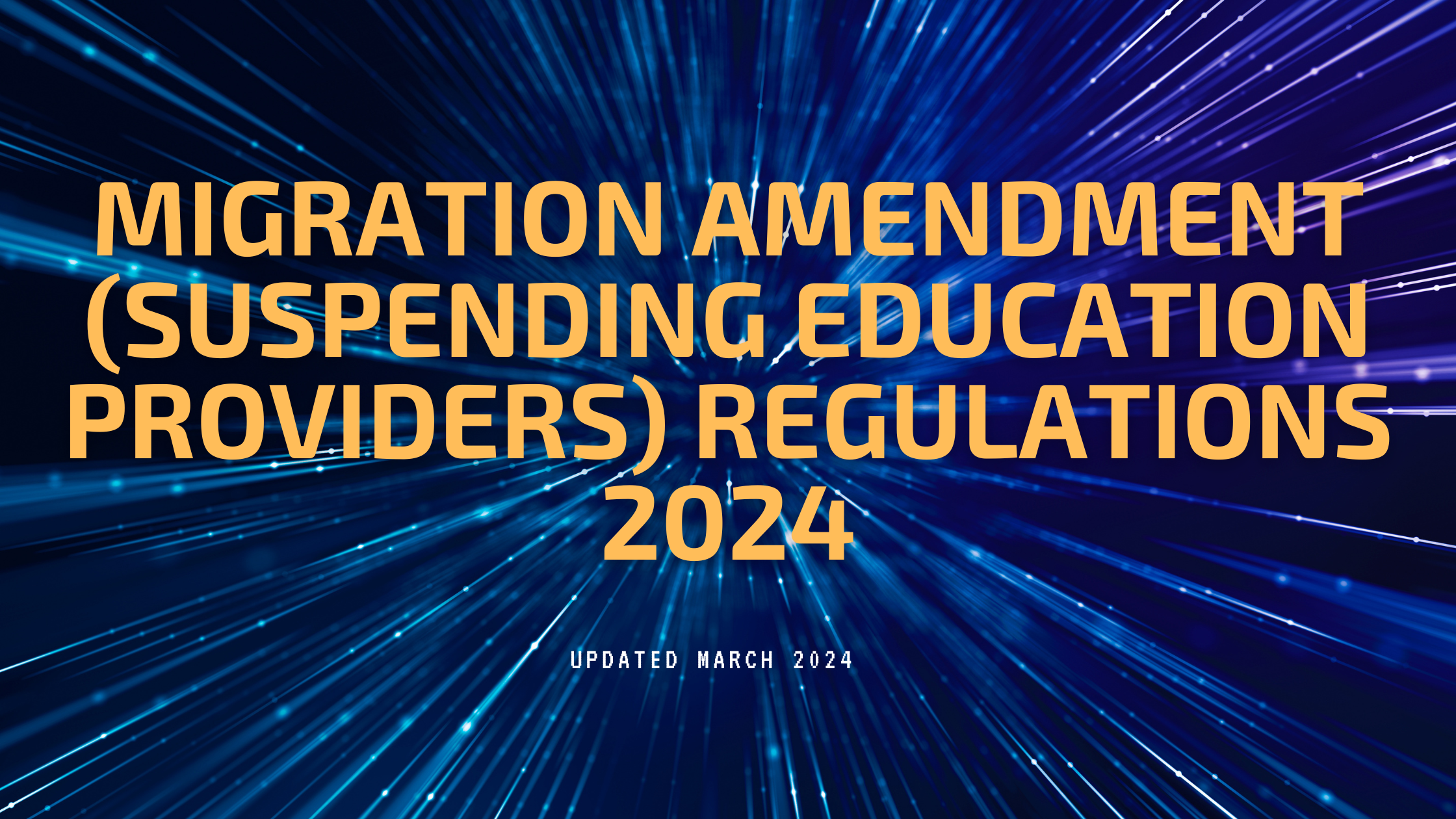The National Vocational Education and Training Regulator Amendment (Strengthening Quality and Integrity in Vocational Education and Training No. 1) Bill 2024 amends the National Vocational Education and Training Regulator Act 2011 (NVETR Act).
The purpose of this amendment is to provide assistance to the Migration Strategy of the Australian government by enabling the Minister to take into consideration a “relevant score” when making a decision regarding the issuance of a suspension certificate to education providers in accordance with the Education Services for Overseas Students Act 2000 (ESOS Act).
The Minister specifies a method through a legislative instrument to determine this “relevant score.” It is possible to use this score to address issues of non-compliance by education providers that may have an impact on the integrity of the student visa program.
According to the amendment, the relevant score will be determined by a number of factors, some of which may include fraudulent activities or claims that are not genuine and are presented by students who are affiliated with the provider. Both the integrity of Australia’s migration system and the prevention of exploitation within the international education sector are the goals of this initiative.
The amendment came into effect the day after its registration on the Federal Register of Legislation and is part of a broader approach to managing and improving Australia’s visa program and international education sector’s reputation.
The amendment will accomplish the following:
- Introduce automatic lapsing of registration for Registered Training Organisations (RTOs) if they haven’t provided training and/or assessments for 12 consecutive months starting from January 1, 2023.
- Restrict RTOs from altering the courses they are registered to offer students within the first 2 years of registration.
- Extend the timeframe for the Australian Skills Quality Authority (ASQA) to conduct internal reviews of decisions in response to review applications from RTOs, from 90 to 120 days.
- Grant ASQA more flexibility in prioritizing initial applications for registration.
- Empower the Minister for Skills and Training to determine, through legislative means, a specified period during which ASQA is not obligated or prohibited from accepting or processing initial applications for RTO registration.
- Expand the scope of offence and civil penalty provisions related to false and misleading representations made by RTOs.
- Increase the penalty units specified under certain provisions of the NVETR Act.
- Implement amendments aimed at enhancing the efficiency and effectiveness of VET regulation.
Source: https://www.legislation.gov.au/F2024L00356/latest/text





Leave A Comment